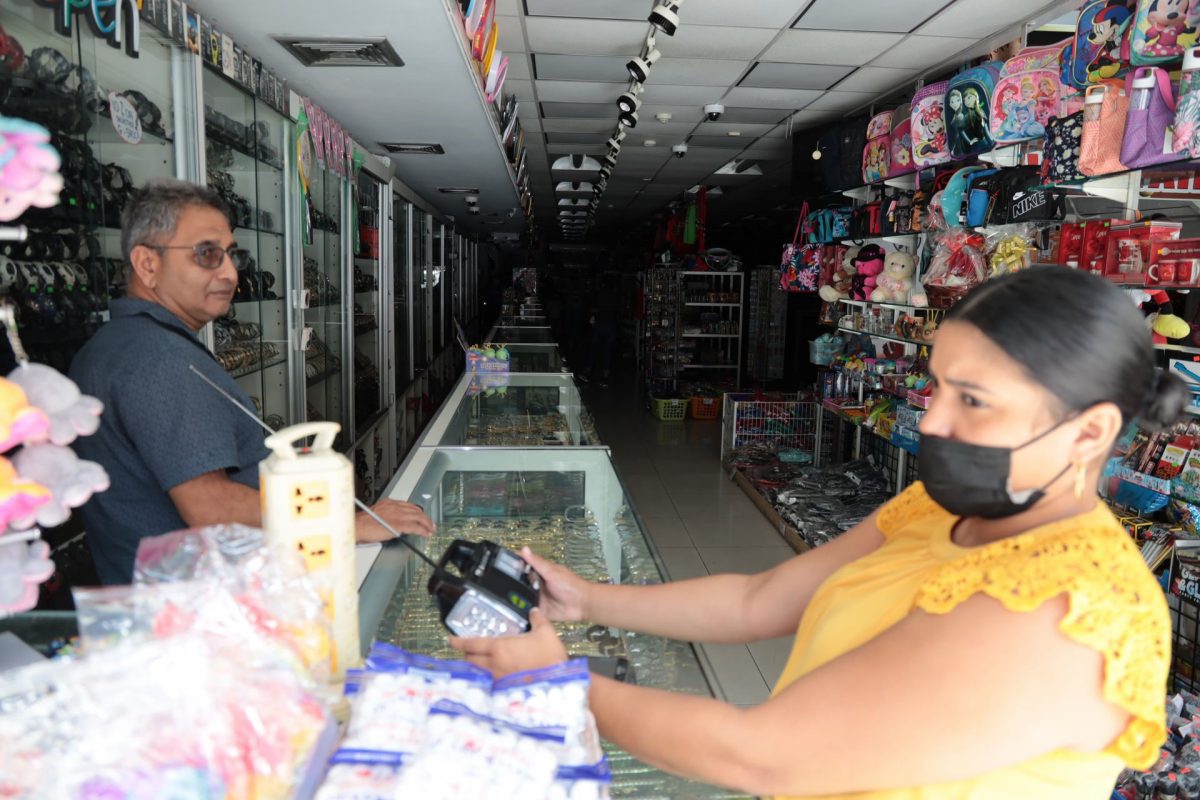(Trinidad Guardian) More than a million people were without electricity from just before 1 pm yesterday up to late last night, as Trinidad was hit by an islandwide power outage.
The situation continued for over 10 hours with a domino effect on the nation’s water supply as 107 of WASA’s booster stations were shut down and police were forced to implement an overnight emergency plan to ensure safety on the roads and to prevent opportunities for criminals.
The lights went out at 12.52 pm and within minutes it became clear that the problem was vast as thousands took to social media stating that they had lost electricity from various parts of the island.
“Customers are advised that we are experiencing a major disturbance on the system and are working to restore supply within the shortest possible time,” T&TEC said on its Facebook page around 2 pm.
Tobago was unaffected.
Businesses and government offices soon began to close and as people drove home, the non-functional traffic lights presented another challenge. Police officers were deployed to the streets in many areas to guard again collisions and to keep order.
The Police Service issued a statement advising motorists to proceed with extreme caution at signalised intersections and should follow the instructions from police officers on-site.
It further stated that the Traffic Management Branch would continue to assess the situation when power was restored across the country.
But as the hours passed, the situation only worsened.
Despite Bmobile and Digicel keeping communication running through their cell towers, many still experienced problems with their service and eventually, as cellphone batteries died, communication between family and loved ones became impossible.
Companies with generators kept running, including media houses that sought to keep the country abreast of the situation.
At 3.20 pm, T&TEC issued another update.
“The Independent Power Producers (IPPs) are currently restarting the generators to allow a gradual restoration of supply. This process will take approximately 2-3 hours,” it said.
That too, proved ambitious as most of the country remained dark and at 6.22 pm, the Commission reported that some areas were in fact starting to get back supply.
“We can report that limited restoration started at approximately 5.00 p.m.
Some customers in Penal, Gandhi village and environs in Central Trinidad were brought back on supply. The process of restarting the generators requires time and is very gradual. Unfortunately, in this instance, the process is taking longer than anticipated and it will be a few more hours before all customers are back on supply. We acknowledge the distress this is causing and we are working closely with the Independent Power Producers to complete the process.”
With some fuel stations still operating, hundreds began rushing for gas, forming long lines in Chaguanas, San Fernando and Wrightson Road.
Gas, however, was not the only problem.
The Water and Sewerage Authority (WASA) then issued a statement saying that most of its water treatment facilities and booster stations throughout Trinidad had been impacted by the power outage.
“These include: 40 Water Treatment Plants, 107 Booster Stations, 210 groundwater sources, as well as desalination and wastewater facilities located across North and South Trinidad are out of operation. Some facilities are operating on limited power capacity through generator supply,” WASA said.
Those included Hollis, Tompire, Talparo and Trinity (Full Production). Acono, Siparia and Carapal (Partial Production).
In addition, WASA said, “it may take 24 to 72 hours for the supply to normalize to some affected areas”.
As the day darkened, concerns about safety during nighttime hours took centre focus.
Police emergency plan
Acting Police Commissioner, McDonald Jacob, however, sought to reassure the country that police were moving to ease their fears.
Jacob said that the operational units of the Police Service were immediately despatched in foot and mobile patrols as soon as the power went down around 1 pm.
“We immediately went into high alert. All mobile units were informed to conduct patrols, while all other operational units were ordered to be outside,” he added.
Jacob reiterated that they took a proactive stance in responding to the situation.
Late yesterday afternoon there were several messages on social media alleging a series of robberies taking place in West Trinidad including Diego Martin, Maraval and Carenage, however, senior officers of the Western Division dispelled the rumours.
T&TEC’s general manager Kelvin Ramsook was a live guest on the CNC3 newscast at 7.06 pm and said it would take another five hours for the supply to be returned.
He said a fault was detected at the Union Gandhi 220 KV circuit and that while they were able to identify the faulted location, they were still investigating the reason for the fault.
He said during the period of default because it was a major line, the machines at Trinidad Generation Unlimited (TGU) went into shutdown mode.
“At this stage, while the system was fully cleared at 1.50 pm, the issue was to get all the generation capacity back onto the grid and that is causing some challenges. We have never had this situation occurring for many years and all four generating stations are separated and we are having challenges getting the capacity back onto the grid and interconnection thereafter,” he said.
“If I had to give you a clear idea of when power would be restored, I would say anything in the region of four or five hours,” he added.
Public Utilities Minister Marvin Gonzalves was also live and apologised to the nation “for this major disruption and inconvenience”.
He said he was at the T&TEC main control centre in Mt Hope and “the guys going out of their way and collaborating with independent power producers to bring electricity back”.
However, he noted that what transpired had exposed the vulnerabilities on the electrical grid. He said he would be speaking with the Prime Minister and Cabinet to look at the grid and put contingencies in place to ensure that this is resolved in the short to medium term.





